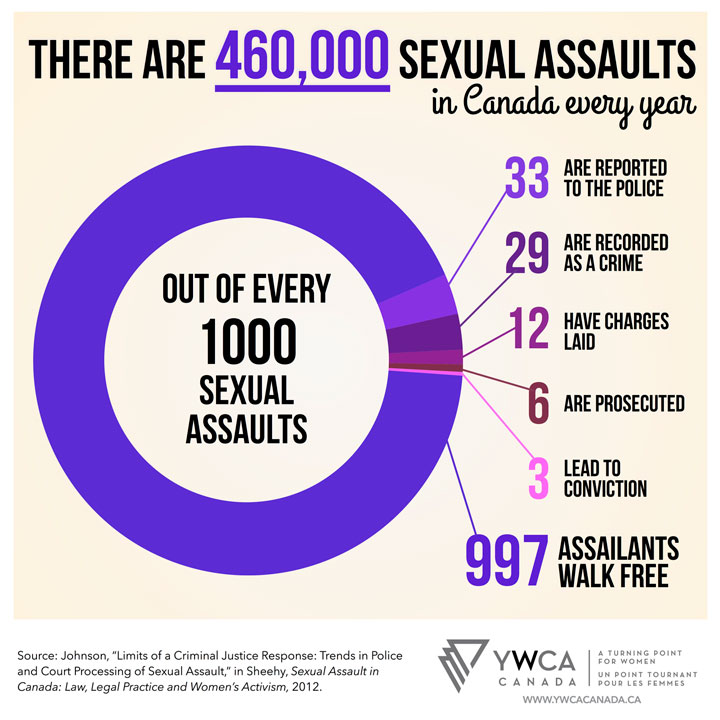WATCH: Former CBC radio host Jian Ghomeshi is now facing four sexual assault charges and one charge of “overcome resistance – choking” that is so serious it carries a potential life sentence. Mike Drolet has the details.

TORONTO – Hours after disgraced CBC host Jian Ghomeshi turned himself in to police Wednesday and was charged with four counts of sexual assault and one count of choking, one of the women accusing him of sexual assault said she hopes his arrest will mark the “start of a change that is so desperately needed.”
Ghomeshi was released on $100,000 bail that afternoon. His lawyer Marie Henein, said he will plead not guilty. None of the charges has been proven in court.
And statistically in Canada, the odds are stacked against sexual assault convictions: In 2012 only 41 per cent of adult sexual assault cases resulted in a guilty finding, according to Statistics Canada. Slightly more, 47 per cent of court cases, were stayed or withdrawn.
READ MORE: Why don’t victims or bystanders report sexual assault?
That’s a lower conviction rate than several other violent crimes: Fifty per cent of adults charged with murder in 2012 were found guilty, as were 53 per cent of those charged with major assault, 50 per cent of those charged with criminal harassment and 51 of those charged with uttering threats. Only 26 per cent of those charged with attempted murder were convicted, however.
The conviction rate for sexual assault is even lower when looking only at Ontario. Only 35 per cent of people charged with sexual assault in the province are convicted. Fifty-eight per cent of the charges were stayed or withdrawn.
And that’s only for sexual assaults that make it to court. Many have noted that sexual assaults tend to be under-reported and, when they are reported, often don’t result in charges being laid. (Those that do result in charges being laid, University of Ottawa professor Holly Johnson argues, are often under-classified – prosecuted as a less serious form of sexual assault than they really are.)
One issue affecting a sex assault case’s likelihood of conviction is how many alleged victims are involved in relation to the charges, said former Toronto police officer and Co-CEO of Investigative Solutions Dave Perry.
While Toronto Police confirmed in the past that three women came forward to report allegations against Ghomeshi, police refused to comment on how many people are involved in the charges.
“Where there may be strength in this case is the fact that there’s more than one complainant,” Perry said. “It certainly gives the police a stronger case if there’s corroboration between different victims. The strength of that corroboration can be increased when the victims in fact don’t know each other, have never spoken to each other or met with each other prior to giving their complaints to the police.”
TIMELINE: Jian Ghomeshi charged in sex assault scandal
Elizabeth Sheehy, vice-dean of research and professor at the University of Ottawa who specializes in sexual assault law, said it may depend on whether a jury (assuming it will be a jury trial) gets to hear evidence from more than one complainant.
“Generally such evidence can be excluded in criminal trials on the basis that it is highly prejudicial to the accused person — however, if it is seen as extremely probative because, for instance, it reveals a highly similar and unusual pattern of behaviour, it can be admitted in the trial,” Sheehy wrote in an email to Global News Wednesday.
Other relevant factors will be whether the counts will be heard all in one trial or in several trials, and whether Henein will be able to challenge potential jurors as “incapable of judging him fairly given the widespread media coverage,” Sheehy wrote. She added these factors would be on top of “the usual defence efforts that are made to destroy complainants’ credibility.”
In a past interview on why victims don’t report sexual assault, Sheehy pointed to things like the Crown dropping charges or pleading them away, the trauma women experience during cross-examination and disclosure of their records/past sexual history, and the fact that in general, convictions are rare.
“One sexual assault worker here in Ottawa has been accompanying women for almost 25 years and has never ever seen a conviction,” she wrote in an October email to Global News.
This chart was reproduced by the YWCA from a report by University of Ottawa criminology professor Holly Johnson that draws on data from the General Social Survey on Victimization (a nationally representative survey) based on self-report data from women. Surveys such as those are the primary way Canada keeps track of such things (in the absence of police reports for all sexual assaults).
“It’s an indication that the system is failing women and women are not going forward because of what happens to them through the process,” Maureen Adams, director of advocacy and communications for the YWCA Toronto, said in an interview Wednesday.
Adams added that women accusing a man of sexual assault aren’t given equal representation during the trial. The defendant has a lawyer looking out for him, but the prosecutor is looking out for the interests of the state and not the accuser.
READ MORE: Jian Ghomeshi, ‘Big Ears Teddy’ and allegations of sexual violence
The “overcome resistance – choking” charge is rarer – and it’s serious, notes David Tanovich, a law professor at the University of Windsor.
“Courts have treated this offence as serious as attempted murder or aggravated sexual assault,” he wrote in an email.
“The sentencing range can be anywhere between 3-5 years where there are no other aggravating factors (like prior criminal record) and likely will be consecutive to any sentence imposed for the sexual assault.”





Comments